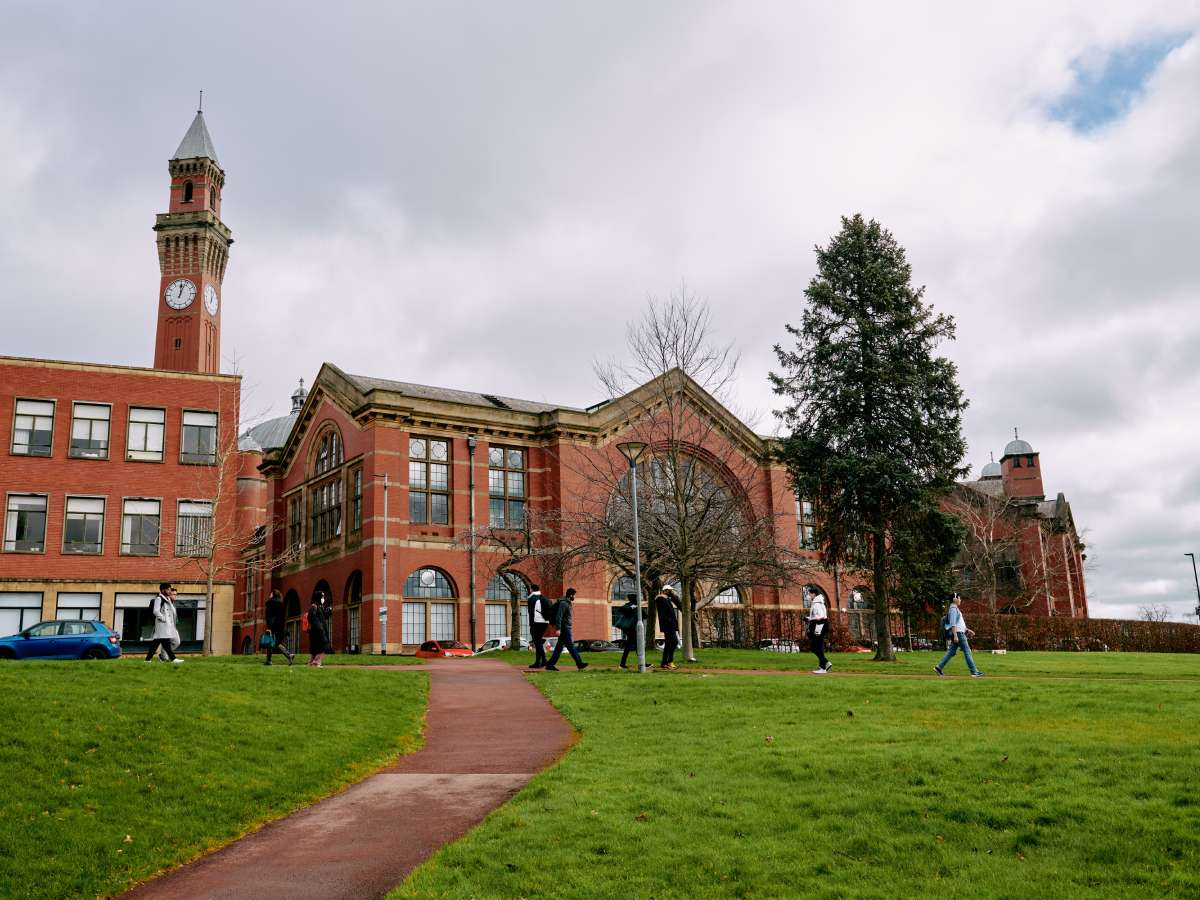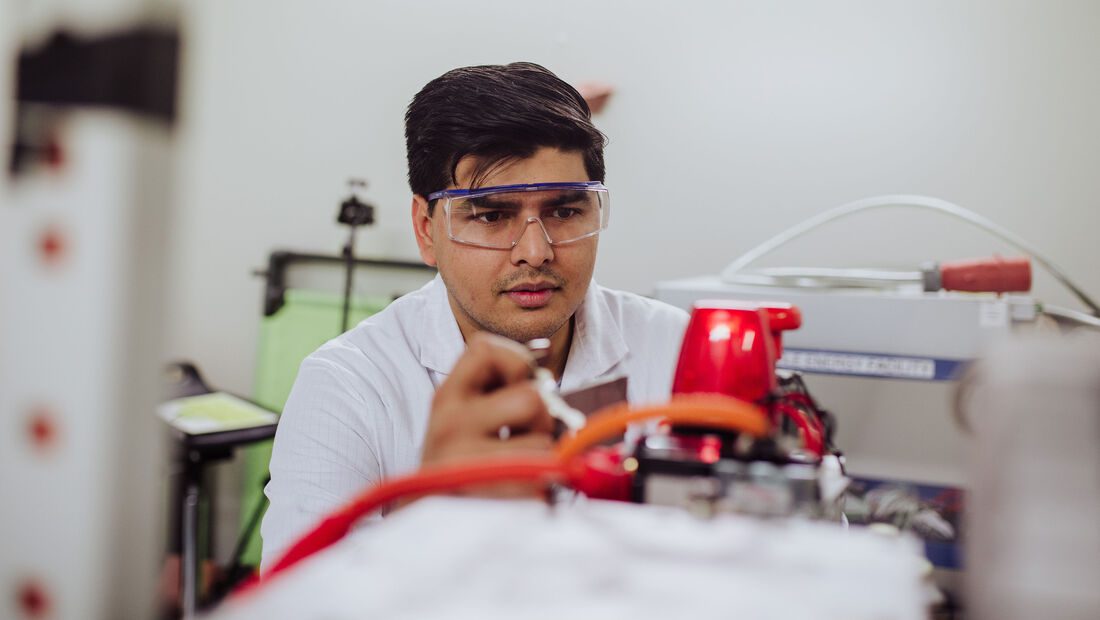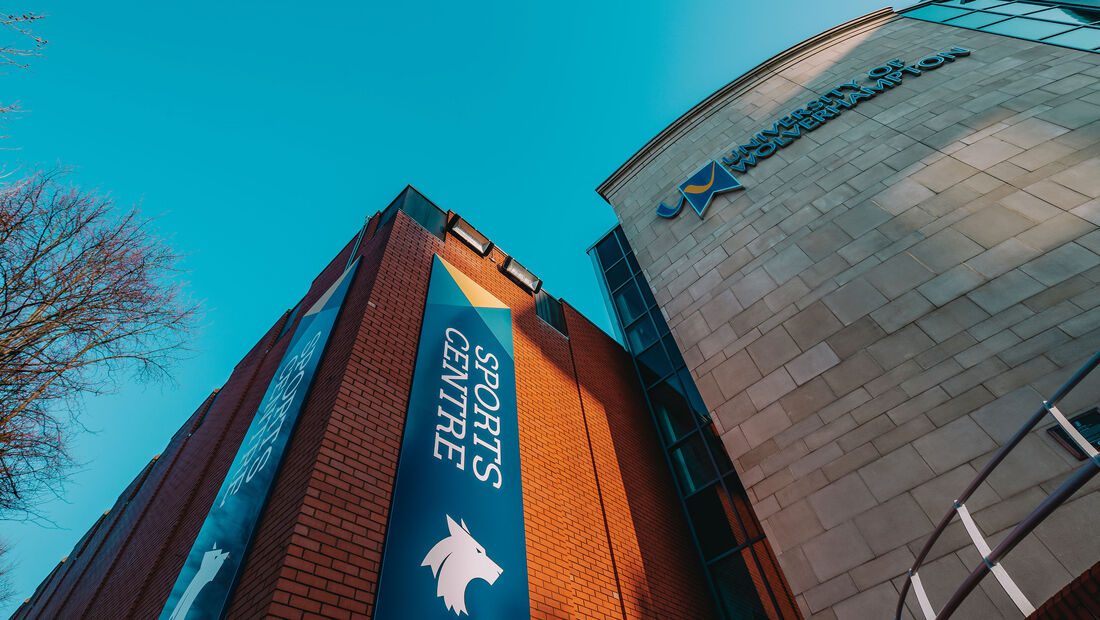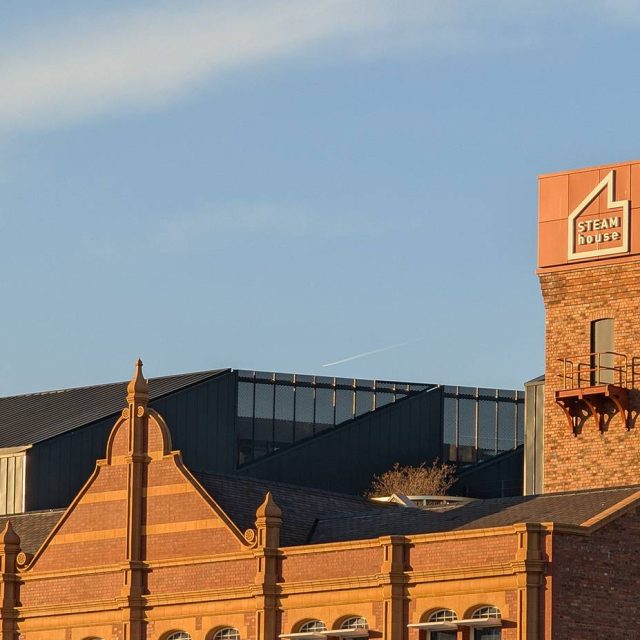Universities Driving Growth in the West Midlands

The West Midlands is home to some of the UK’s most innovative university institutions that not only educate world-class talent but also partner with industries to power economic growth, research breakthroughs, and business innovation. For investors, these universities are more than centres of learning: they’re engines of opportunity, offering cutting-edge R&D, sector expertise, and a pipeline of skilled graduates.
Explore the region’s leading universities below and discover how each one can support your business ambitions:
Aston University: Specialists in business engagement and life sciences, with a strong track record in enterprise and knowledge transfer.
University of Birmingham: A Russell Group leader with global research strengths across healthcare, advanced manufacturing, and low-carbon energy.
University of Wolverhampton: Industry-focused innovation hubs, including the National Brownfield Institute and cutting-edge science parks.
University of Warwick: Home to WMG and the National Automotive Innovation Centre, pioneering mobility, manufacturing, and CleanTech.
Birmingham City University: A creative and digital innovation hub, leading projects in STEAM, health tech, and SME growth.
The University of Birmingham
With its beautiful campus and classic architecture, the University of Birmingham is at the forefront of the UK’s life sciences and healthcare innovation, driving breakthroughs in cancer research, immunology, and cardiovascular medicine.
Anchored by its close partnership with University Hospitals Birmingham and other institutes through the Birmingham Health Partners alliance, as well as the emerging Birmingham Health Innovation Campus, the university plays a pivotal role in shaping the region’s reputation as a centre for medical excellence.
Where health tech and biotech companies gain unique access to world-class research, clinical expertise, and a healthcare ecosystem.

Academic and Sector Strengths
The University of Birmingham aligns with key growth sectors, offering world-class expertise and a steady pipeline of skilled graduates who strengthen the regional and global business community.
- College of Engineering and Physical Sciences: Leader in advanced manufacturing, AI, robotics, and clean energy technologies. Home to the Birmingham Centre for Railway Research and Education, the largest university-based railway R&D group in Europe.
- College of Life and Environmental Sciences: Pioneering research in genomics, neuroscience, and environmental sustainability. Hosts the Institute of Forest Research and the Centre for Human Brain Health.
- College of Medical and Dental Sciences: Works with University Hospitals Birmingham NHS Trust to deliver world-leading medical research in cancer, immunology, and cardiovascular science. Key partner in Birmingham Health Innovation Campus, driving health tech and biotech collaboration.
- Birmingham Business School: Part of an elite group with triple-crown accreditation (AACSB, AMBA, EQUIS). Strong focus on global finance, responsible business, and digital innovation.
How does the University of Birmingham support local businesses?
- Business Engagement Hub: Connects companies with researchers, students, and funding opportunities to accelerate innovation.
- Enterprise & Innovation Programmes: Supports spinouts, start-ups, and SMEs with tailored mentoring, incubation, and investment pathways.
- Collaborative Research Centres: Hosts catapult centres and industry partnerships in energy, life sciences, transport, and digital systems.
- Talent Pipeline: Large-scale placement and internship schemes link employers with a diverse student body from over 150 countries.
Where is the University of Birmingham?
Located in Edgbaston, just minutes from Birmingham city centre, the university offers businesses direct access to talent, cutting-edge facilities, and strong transport links.
Transport connections:
- Train: University Station is directly on campus, only 7 minutes from Birmingham New Street.
- Road: Easy access to the M5, M6, and wider Midlands motorway network.
- Airport: Birmingham International Airport is less than 30 minutes away.
Plan your visit to the University of Birmingham
Aston University
Aston University, a dynamic public research institution in Birmingham city centre, is renowned for its Biochar CleanTech Accelerator, turning organic waste into low-carbon bioproducts like biochar, fuel, power, and building materials via pyrolysis technology.

Academic and Sector Strengths
Aston’s structured academic ecosystem spans multiple schools that align with key investment sectors, fostering a steady pipeline of talent that allows companies to build skilled, local teams and strengthens the wider business community.
- Aston Business School: Globally respected with a ‘triple-crown’ accreditation (AACSB, AMBA, EQUIS) achieved by only 1% of business schools globally, this school connects directly with sectors like FinTech, corporate services, and international business.
- Aston Law School: Equips graduates for legal practice and innovation in LawTech, compliance, and regulatory services, critical supports for modern enterprise.
- School of Engineering & Applied Science: A hub for R&D in advanced manufacturing, energy systems, automotive technologies, and digital engineering.
- School of Life & Health Sciences: Home to the Medical Research Institute, this school drives world-class research in cardiology, diagnostics, and regenerative medicine, offering unique collaboration opportunities for healthcare and biotech investors.
With over 70% of students completing professional placements, the highest rate in the UK, Aston delivers a stream of career-ready graduates who bring fresh talent and innovation to investors.
How does Aston University support local businesses?
Aston University is also a key partner in the Birmingham Knowledge Quarter (B-KQ) Investment Zone, a regional initiative designed to foster innovation and economic development. This collaboration allows additional opportunities for businesses to engage with cutting-edge research and development projects. Aston also has a long history of collaborating with businesses to drive innovation and make a real change.
- Start & Grow Your Business: Aston helps startups and SMEs with tailored growth programmes, mentoring, and access to funding opportunities. Businesses can also collaborate with students through the Aston Business Clinic for fresh, practical solutions.
- Collaborate with Our Academics: Aston connects businesses with leading researchers through partnerships and programmes that deliver real impact. Companies of all sizes can tap into cutting-edge expertise to innovate and stay ahead of the competition.
- Business Hub & Innovation Space: Located on Aston’s city-centre campus, the Business Hub offers flexible workspaces, networking opportunities, and access to specialist facilities. It’s a place where businesses can connect with researchers, students, and fellow innovators to grow and collaborate.
Where is Aston University?
Aston University sits in the heart of Birmingham. Its central location provides investors with direct access to talent, research facilities, and commercial opportunities.
Transport links:
- Train Stations: Birmingham New Street, Birmingham Snow Hill – both within 10-15 minutes walking distance
- Tram Routes: West Midlands Metro lines connect the city centre and surrounding areas such as Grand Central, Bull Street, Library (Centenary Square), Town Hall, and the Jewellery Quarter. The tram route also connects to Wolverhampton, the NEC, Dudley and many more.
- Bus Routes: Multiple city and regional services connecting the campus across the Midlands
Plan Your Visit to Aston University
University of Warwick
Founded in 1965, the University of Warwick has rapidly grown into one of the UK’s most prestigious research institutions. Nestled in Coventry, just outside Birmingham, Warwick is more than just a place of academic study – it’s a hub of innovation, discovery, and industry collaboration.
Consistently ranked among the nation’s top universities and a proud member of the Russell Group, Warwick has earned a global reputation for the quality and impact of its research. From work in science and technology to world-leading contributions in business, economics, and the humanities, the university continues to shape ideas that influence industries, policies, and communities worldwide.

How does the University of Warwick support local businesses?
The University of Warwick actively supports enterprises, especially scale-ups and tech-led SMEs, with a full suite of programmes and initiatives:
- University of Warwick Science Park (UWSP): A thriving hub with over 152 innovative companies, 12 tenant-occupied buildings and 4 innovative centres. The Warwick Science Park was named in the Financial Times’ first ‘Europe’s Leading Start-Up Hubs Special Report’ as one of the top places to start and scale your business.
- Business Ready Programme: The Business Ready programme is designed to help businesses innovate and achieve sustainable growth. Through skills development and tailored support strategies, participants can work with a team of growth advisers and specialist mentors to overcome challenges and build a strong foundation for long-term success.
University of Warwick’s R&D and Innovation Facilities
The University of Warwick is home to some of the UK’s most advanced research and development facilities, offering businesses, investors, and industry partners direct access to world-class infrastructure. With a strong emphasis on collaboration, Warwick provides the tools, expertise, and environment to turn cutting-edge research into commercial impact.
- Warwick Manufacturing Group (WMG): WMG helps SME manufacturers boost productivity and profitability by introducing innovative technologies and techniques. With their expertise, guidance, and access to advanced equipment, they make it easier for businesses to tackle both immediate and long-term challenges.
- Research Technology Platforms: The University of Warwick’s Research Technology Platforms are a unique feature of its innovation landscape. Spread across multiple disciplines, these 13 specialist hubs provide access to advanced research equipment, technical expertise, and highly skilled staff.
- Innovation Campus (Stratford-upon-Avon): A regional R&D hub encouraging businesses of all sizes to work alongside each other, bringing together the best research and industry experts.
- University of Warwick’s Visualisation Group: Applying computing solutions to challenging applications in healthcare, manufacturing, and cultural heritage.
- STEM Connect Programme: The University of Warwick is shaping the future of STEM, using education, innovation, and scientific discovery to tackle society’s biggest challenges. With new state-of-the-art facilities, the university fosters collaboration, groundbreaking research, and strong partnerships, creating an inclusive environment for researchers and companies to work together.
Together, these facilities cement Warwick’s reputation as a powerhouse of R&D and innovation. By combining cutting-edge infrastructure with a culture of collaboration, the University helps businesses and investors accelerate innovation, address global challenges, and create lasting economic value.
Where is the University of Warwick?
University of Warwick’s modern campus sits in Coventry, offering excellent connectivity:
- Train Access: Direct links to Birmingham New Street, London, and beyond via Coventry station.
- Road & Rail: Close proximity to M6/M45 and HS2 connections.
Plan your journey to the University of Warwick.
Birmingham City University
Birmingham City University is a modern, industry-focused institution known for its deep connections to business and the creative industries. With roots dating back to 1800, BCU has grown into one of the UK’s leading practice-based universities, championing innovation through collaboration. Its emphasis on applied learning, entrepreneurialism, and partnerships makes it a key driver of skills and enterprise in Birmingham’s fast-growing economy.

What R&D and Innovation Facilities does Birmingham City University offer?
Birmingham City University emphasises dynamic, real-world research and collaboration:
- STEAMhouse: A £70 million innovation hub that brings together science, technology, engineering, the arts, and maths, part of a £500 million investment in BCU. Supports businesses in prototyping, product development, and cross-disciplinary R&D. A cornerstone of Birmingham’s creative and digital economy, helping start-ups and established firms grow.
- CreaTech Frontiers: This is a five-year, £7.2 million initiative funded by the Arts and Humanities Research Council (AHRC), part of UK Research and Innovation (UKRI). The project is designed to advance research and development, boost business innovation, and strengthen skills, while playing a key role in the creative industries ecosystem across the West Midlands. At its core, the programme is establishing a network of four interconnected R&D labs, each specialising in a complementary area: immersive audio and video technologies (BCU), virtual production, applied AI for Createch, and gaming, esports, and animation.
Birmingham City University’s Industry Partnerships & Support for Business
Birmingham City University works hard to bridge academia and industry, offering impactful collaborations and support:
- Enterprise & Regional Engagement:
- DIATOMIC Accelerator: Run alongside the City Council, STEAMhouse, and Greater Birmingham Chamber of Commerce to support business growth
- Cyber Security Kickstart: Working with government initiatives to provide placements and support for cyber roles
- Med-Tech Innovation Accelerator: Assists local healthcare companies with 5G and AI-enabled system design and adoption
- Help to Grow Management: Delivers mentoring and training to strengthen SME performance
- Historic Knowledge-Based Partnerships. BCU has partnered with companies like Rolls-Royce, Morgan Motor Company, Walsall PCT, University Hospital Birmingham, and more, through graduate-led consultancy projects to solve real business problems
Where is Birmingham City University?
BCU’s campuses are strategically located in Birmingham city centre, offering businesses unrivalled access to students, staff, and world-class facilities. Its position at the heart of the city makes it a natural partner for companies seeking to capitalise on the opportunities offered through the Birmingham Knowledge Quarter.
Transport connections:
- Rail: Short walking distance from Birmingham Moor Street and New Street stations.
- Road: Easy access to the M6, M5, and the Midlands motorway network.
- Airport: Birmingham International Airport is under 20 minutes by train.
Plan Your Visit to Birmingham City University
University of Wolverhampton
The University of Wolverhampton has strong ties to the region, supporting business, innovation, and skills development across the West Midlands. With a history dating back to the mid-19th century, it has grown into a modern institution that combines academic expertise with some of the region’s most exciting research and development facilities.

How Does the University of Wolverhampton Support Local Businesses?
The University of Wolverhampton plays a central role in driving the regional economy, helping entrepreneurs and established businesses alike to innovate, grow, and thrive. With specialist facilities, tailored support programmes, and strong links to industry, the university acts as a catalyst for business success. Here’s a closer look at how it supports the local business community:
- Science in Industry Research Centre (SIRC): Provides SMEs with hands-on R&D support, from prototyping and lab testing to intellectual property and grant applications.
- University of Wolverhampton Science Park: Established in 1995, the Science Park supports local businesses by providing access to research, expertise, knowledge transfer programmes, and a collaborative hub for companies to use.
- SPARK Business Incubation Centre: Supports entrepreneurs and creative teams, aiming to be “the home of start-ups” by retaining local talent and attracting investment to the Black Country, Staffordshire, and The Marches. Its collaborative community helps start-ups build connections that drive long-term business sustainability.
- Knowledge Transfer Partnerships (KTPs): One of the most powerful tools offered by the University is its KTPs. These programmes embed academic experts directly into businesses to solve real-world problems and unlock new opportunities. A KTP can bring cutting-edge research, specialist knowledge, and fresh talent into a company, whether that’s to improve processes, develop new products, or enter new markets.
The University of Wolverhampton has made significant investments in research and innovation facilities, creating a powerful ecosystem that supports businesses across a wide range of industries. From construction and manufacturing to life sciences and clean energy, the university offers companies access to world-class labs, testing environments, and collaborative spaces that accelerate growth and innovation.
- Springfield Campus & National Brownfield Institute (NBI): is a world-class research centre driving innovation in construction, focusing on brownfield regeneration and remediation through research, policy development, and industry partnerships.
- Green Innovation Corridor: As industries face the urgent challenge of transitioning to sustainable practices, the university is part of the Green Innovation Corridor, which provides specialised research and development hubs in key technologies of the future.
- Centre for Engineering Innovation and Research (CEIR): Uses advanced science and interdisciplinary research to solve engineering challenges across industry, healthcare, and the environment.
- e-Innovation Centres: Purpose-built spaces supporting and growing developing technologies and innovative businesses in the West Midlands region.
Together, these facilities position the University of Wolverhampton as a central player in the West Midlands’ innovation ecosystem. By combining cutting-edge infrastructure with expert academic support, the university helps businesses tackle complex challenges, develop new technologies, and compete in rapidly changing global markets.
Where is the University of Wolverhampton?
The main campus is based in the heart of Wolverhampton, with additional sites at Telford and Walsall. Its location offers direct access to major transport links.
Transport links include:
- Tram: The West Midlands Metro connects Wolverhampton with Birmingham city centre, the Jewellery Quarter, Dudley, and the NEC.
- Bus: A large network of regional services links the University with surrounding towns and cities.
- Train Access: Wolverhampton Train Station offers direct links to Birmingham New Street, London Euston, Manchester, and Liverpool.
You might be interested in…

Investment Zone
Set up in WM

Universities
Why the West Midlands
